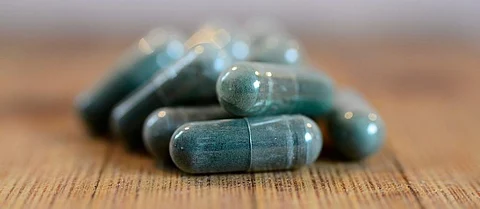AMR driven by manufacturing our next big challenge
For complete coverage, click here
Pharmaceutical residues can be found in the environment and waters in almost every corner of the world, with potentially harmful effects on humans and ecosystems. The substances can alter the behaviour of organisms, bio-accumulate, and cause antibiotic resistance.
Initially, residues were primarily associated with the consumption of medication, but a growing body of research also points to the role of manufacturing. Researchers have found high concentrations of pharmaceutical substances in surface and groundwater systems near production facilities.
There is a strong case for an immediate shift to safer manufacturing practices: It would save lives in global pharmaceuticals hubs such as Hyderabad; and it would slow the spread of antimicrobial resistance (AMR), one of humanity’s greatest health threats. Not to mention that the producers of antibiotics would be able to ensure that their products remain effective in the future as well.
Despite this convincing logic, it has been difficult to achieve meaningful and large-scale change. The incentives simply are not there.
Even consumers who regularly opt for fair-trade food and organic cotton have rarely given a thought to how the medication they consume is produced. And if consumers never ask for such information, companies lack the motivation to shift to costlier production practises than their competitors.
In addition, the individual patient is normally prescribed a specific medication by a physician and hence lacks both information and the ability to effectively choose between different products.
But change may finally be around the corner. In February 2020, we launched the Responsible Antibiotics Manufacturing Platform (RAMP), a global collaboration. RAMP is special because it brings together pioneers among procurers, regulators, and companies to co-create the business-case for sustainably produced antibiotics.
RAMP builds on experiences we at, Stockholm International Water Institute, SIWI, have accumulated over many years of work, encouraging safer drug manufacturing. Interest is steadily growing, and it should be noted that there are voluntary standards for responsible manufacturing developed by the AMR Industry Alliance.
It is also encouraging that the government of India has started to talk about setting the world’s first national targets for emissions of pharmaceutical residues. And both individual countries and the United Nations Development Programme UNDP have formulated environmental criteria for procuring medicine.
Even investors show a growing interest in addressing the hidden risks in antibiotics supply chains.
But for these scattered initiatives to move to the centre stage and fundamentally transform the pharma business, something more is needed. We do believe that the RAMP platform can be this decisive force that makes sustainable manufacturing the norm for the whole antibiotics industry.
The more companies, procurers, and regulators that join us, the faster and smoother the transition will be. We therefore welcome all interested stakeholders to be part of this growing movement to ensure that we will have access to safe antibiotics also tomorrow.
The author is programme manager, SIWI. Views expressed are the author’s own and don’t necessarily reflect those of Down To Earth


